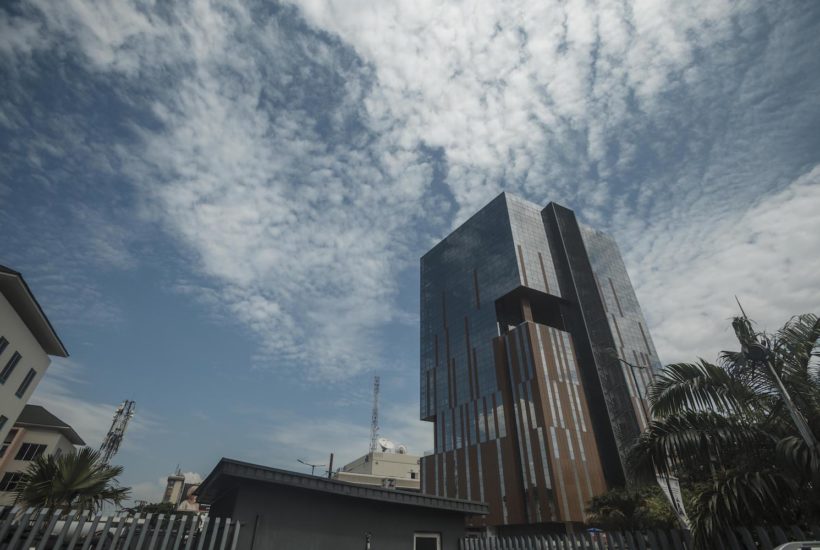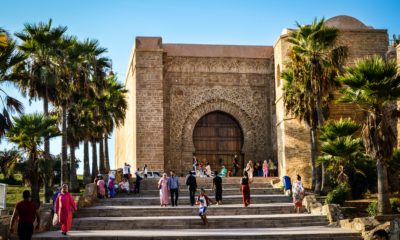Africa
African Fund Managers: Governance at the heart of investment decisions
A survey of African fund managers has found governance, sound regulations, and access to market and price data are key concerns in investment decisions made in the region. Besides some difficulty accessing this critical data, fund managers are overwhelmingly optimistic about future growth in the region. The survey also confirmed that African fund managers are operating at a global standard.

According to a survey of 50 African asset managers conducted for the African Exchanges Linkage Project (AELP), governance, sound regulations and the availability of market and price data help African fund managers in their decision to invest in other African markets. The main factors influencing their choices when it comes to new markets are: market regulation (for 91% of respondents), followed by regulation imposed on investors and the availability of price and market data (each with 90%).
Other key criteria that help fund managers choose where to invest include: transaction price levels, execution and commission efficiency (86%), quality of companies and investment opportunities (also at 86%), institutional, social and governance criteria (84%), and availability of research (80%). Three-quarters of investors responded that they are reluctant to invest in small and illiquid markets or in those with excessive valuations. Only half of the respondents indicated that their decision to invest in a company is based on its dividend policy, while valuation and governance were the most frequently cited factors.
Stay up to date with market sentiment, developments and other important financial news in Africa and around the world by downloading our free companion app, Born2Invest.
Bullish sentiment amongst Nigerian and Francophone managers
Asset managers in Nigeria and francophone West African countries are the most optimistic about the prospects for African economies. The AELP study found that 97% of participating Nigerian asset managers are optimistic about the future of the continent, with average assets under management of $364 million, followed by Francophone asset managers with 85% and who have an average of $416 million in assets under management. The average for all respondents, including some South African managers, was $4.1 billion in assets under management.
Optimism was also prevalent among participating asset managers in Mauritius (80% were optimistic), Morocco (73%), Nairobi and Egypt (each with 65% of respondents being optimistic). Nearly half of the respondents (46%) manage assets with five-year investment horizons and 23% of them have investment horizons of three to five years.
African fund managers meeting global standards
Commenting on the study, Dr. Edoh Kossi Amenounvé, President of ASEA, said: “The results of the study confirm the high level of professionalism of African fund managers using globally recognized standards and criteria in their decision making. This is very reassuring for the success of the AELP initiative.
The survey set out to assess the attractiveness of different investment markets within the AELP, which brings together seven major African stock exchanges with the aim of strengthening trading, investment and information links. The AELP provides a technological platform to link brokers, so that a broker on one exchange can send investor orders to a broker on another exchange for execution.
A flourishing exchange
As a reminder, the AELP is a joint initiative of the African Securities Exchanges Association (ASEA) and the African Development Bank (AfDB) to unlock pan-African investment flows, promote innovations that foster diversification for investors and address issues of market depth and liquidity. The initiative is financed by the Korea-Africa Economic Cooperation (KOAFEC) through the African Development Bank.
The AELP brings together the Regional Stock Exchange (BRVM, comprising eight West African countries), the Casablanca Stock Exchange, the Egyptian Stock Exchange, the Johannesburg Stock Exchange, the Nairobi Securities Exchange, the Nigerian Stock Exchange and the Mauritius Stock Exchange.
According to the participating markets, cross-border trade between their seven exchanges totalled $1.1 billion in 2019, rising to over $500 million in the first quarter of 2020. The “African Securities Listed” assets between its exchanges offer capital investments in more than 1,050 companies, including some of Africa’s most promising and profitable companies as well as global leaders. Investors can also buy or sell bonds, exchange-traded funds (ETFs) and derivatives if listed on participating exchanges.
ASEA supports African economic integration and the African continental free trade area. The AELP will promote the free movement of capital and investment.
__
(Featured image by S. Aderogba via Wikimedia Commons)
DISCLAIMER: This article was written by a third party contributor and does not reflect the opinion of Born2Invest, its management, staff or its associates. Please review our disclaimer for more information.
This article may include forward-looking statements. These forward-looking statements generally are identified by the words “believe,” “project,” “estimate,” “become,” “plan,” “will,” and similar expressions. These forward-looking statements involve known and unknown risks as well as uncertainties, including those discussed in the following cautionary statements and elsewhere in this article and on this site. Although the Company may believe that its expectations are based on reasonable assumptions, the actual results that the Company may achieve may differ materially from any forward-looking statements, which reflect the opinions of the management of the Company only as of the date hereof. Additionally, please make sure to read these important disclosures.
First published in ecoactu.ma, a third-party contributor translated and adapted the article from the original. In case of discrepancy, the original will prevail.
Although we made reasonable efforts to provide accurate translations, some parts may be incorrect. Born2Invest assumes no responsibility for errors, omissions or ambiguities in the translations provided on this website. Any person or entity relying on translated content does so at their own risk. Born2Invest is not responsible for losses caused by such reliance on the accuracy or reliability of translated information. If you wish to report an error or inaccuracy in the translation, we encourage you to contact us.

-

 Markets7 days ago
Markets7 days agoCotton Market Weakens Amid Demand Concerns and Bearish Trends
-

 Crypto2 weeks ago
Crypto2 weeks agoIs Strategy’s Bitcoin Bet Becoming a Dangerous House of Cards?
-

 Fintech4 days ago
Fintech4 days agoFintech Alliances and AI Expand Small-Business Lending Worldwide
-

 Crowdfunding2 weeks ago
Crowdfunding2 weeks agoSpain’s Real Estate Crowdfunding Boom: Opportunity, Access, and Hidden Risks

























